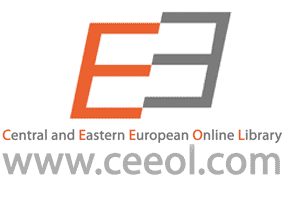Green fraud. A new frontier for crime

A new frontier for fraud and market abuse has opened up as the scale of sustainable business activity and ‘green’ projects grows while the controls and systems that protect them remain relatively weak, says a PwC report.
Programmes such as the EU Trading Scheme (which covers approximately 11,000 installations across Europe, or half of the EU’s greenhouse gas emissions – worth nearly $120bn) are now of such a size that they are attracting the serious attention of professional criminals.
“We are seeing a surge in frauds with a green element. Often this is down to a lack of a mature information security policies and controls”, stated Daniel Anghel, Partner, Indirect Tax, PwC Romania.
It is estimated that the VAT fraud with greenhouse gas emissions allowances has reached billions of Euros at the level of the European Union. This is the reason why the European Commission adopted last year the EU Directive 2010/23 allowing Member States to opt for the application of the VAT reverse change mechanism in case of domestic supplies with greenhouse gas emission allowances, in order to discourage such frauds. This measure was also implemented in Romania starting with 1 January 2011.
The fraud with greenhouse gas emissions allowances has reached a new level, specifically through more “modern” techniques, such as “phishing scams”. The seriousness of such threats was recently demonstrated by the closure of national carbon registries across the EU after a phishing scam and cyber attack led to a €45m theft from several companies. Several are yet to re-open.
“Fraudsters are using the latest techniques to attack weak points in the system, but these are essentially old frauds applied to new markets”, stated Kemal Özmen, Director, Forensic Services, PwC Romania. “One of the EU markets for greenhouse gas emission certificates that was affected by the recent fraud wave was Romania, a clear sign that local companies and public authorities are vulnerable to such attacks and should take precautionary steps to protect their interests”, added Özmen.
Weak information security measures are a classic entry point for many of these, and concerns about phishing scams (on-line exercises in illicit information gathering) are creeping up boardroom agendas elsewhere. PwC recently conducted a fake phishing test for a multinational client which caught over 5% of the tested population. Over 2000 employees clicked though to a fake internet page. The same team has conducted tests where over 20% of the tested group have been caught out.
The PwC report, ‘How to assess your green fraud risks,’ provides an overview of current and emerging frauds in carbon markets, emissions trading, the project based markets and voluntary markets. It covers bribery, phishing, cyber-attacks and also the dangers for companies when reporting on their own green credentials.
“Companies need to apply the same diligence to their sustainable business activities as they do to their core financial reporting and controls”, concluded Daniel Anghel.
PwC forensic services and Sustainability & Climate Change teams are monitoring fraud in the sustainable business sector on an ongoing basis.
For further information, you can download the report at the following address:
http://www.ukmediacentre.pwc.com/imagelibrary/downloadMedia.ashx?MediaDetailsID=1880
This article is also available in: Romanian
This post is also available in: Romanian




